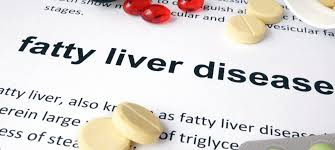Natural Remedies for Fatty Liver Disease | Liver Disease Specialist in Kochi

Natural Remedies for Fatty Liver Disease Fatty liver disease is becoming increasingly common due to sedentary lifestyles and poor dietary habits. While medical treatments are essential for advanced cases, natural remedies can play a significant role in managing and even reversing fatty liver disease in its early stages. If you're looking for holistic approaches to boost liver health, here are some natural remedies worth exploring. 1. Adopt a Liver-Friendly Diet Focus on Whole Foods : Incorporate fruits, vegetables, whole grains, and lean proteins into your meals. Foods rich in antioxidants, like berries and leafy greens, help combat oxidative stress on the liver. Healthy Fats : Opt for sources of healthy fats, such as avocados, nuts, seeds, and olive oil. These can reduce inflammation and improve liver function. Limit Processed Foods : Avoid sugary, fried, and processed foods that can exacerbate fat buildup in the liver. 2. Incorporate Regular Exercise Physical activity helps burn ...



